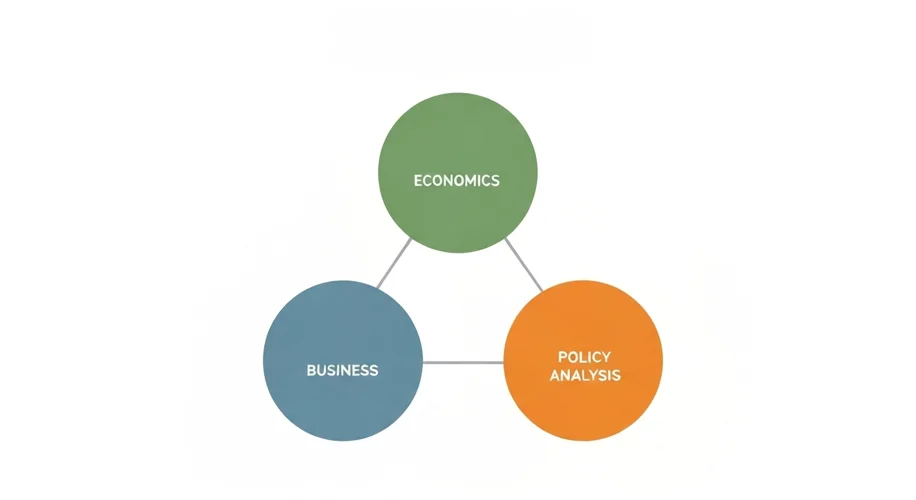In my career, I’ve spent a lot of time thinking about how technology impacts society. It’s a complex field, and just like technology, sometimes the way we talk about things can get a bit muddled. That’s why I want to talk about economics today.
Many people use “economics,” “business,” and “policy analysis” interchangeably, but they’re actually quite different. Understanding these distinctions is key to grasping how our world works.
Think of it like building software. You have the core programming (the economics), the product you sell (the business), and the rules governing its use (the policy). All are related, but they serve different purposes.
Economics is the study of how people make decisions when faced with scarcity. It’s about understanding choices, incentives, and the allocation of resources. For instance, economists might study why consumers choose one product over another, or how changes in interest rates affect borrowing. It’s a broad, often theoretical, field that seeks to understand fundamental human behavior in relation to resources.
Business, on the other hand, is about creating, selling, and delivering products or services. A business operates within the framework that economics describes, but its focus is on profit, growth, and customer satisfaction. A company deciding to launch a new smartphone, for example, is a business decision, informed by economic principles but driven by market opportunity and operational strategy.
Policy analysis, meanwhile, looks at the rules and regulations that govern our society. Policymakers might use economic data to decide whether to implement a tax, regulate an industry, or fund a public service. The goal here is often social welfare, stability, or addressing market failures. For example, analyzing the economic impact of a carbon tax falls under policy analysis.
Why does this distinction matter? Well, misapplying these concepts can lead to flawed decisions. Imagine using business growth strategies to set monetary policy, or applying purely theoretical economic models without considering the practicalities of business operations or the societal impact that policy addresses.
Just as we need clear parameters when discussing technology’s impact – understanding whether we’re talking about the AI’s code, its market adoption, or the regulations around it – we need the same clarity with economics. It helps us ask better questions and arrive at more informed conclusions.
It’s crucial to consider the specific lens we’re using. Are we trying to understand the underlying incentives driving behavior (economics)? Are we focused on creating and selling value (business)? Or are we aiming to shape societal outcomes through rules and guidelines (policy analysis)?
By recognizing these differences, we can engage in more meaningful discussions about how resources are managed, how value is created, and how our societies are shaped. It’s about moving beyond the jargon to a more nuanced and effective understanding of the world around us.

